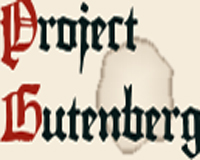



Sample questions: “How did colonies benefit imperial powers? Did these benefits extend to colonized peoples? If not, why not?” “How was the establishment of the Métis nation related to the exploration and colonization of North America?” “In what ways do people today continue to be affected by colonial policies or practices dating from this period?”
This short film tells the tale of the men who drove big freighter canoes into the wilderness in the days when the fur trade was Canada's biggest business. The film recreates scenes of the early 19th century with a soundtrack by an all-male chorus.
This short film explores the effect the war of 1812 had on pioneer settlements of the Upper St. Lawrence and Niagara regions. When Britain and the United States were at war, the feud spilled over into Canada, and farmers who had worked together to clear their land had to decide on which side their allegiance lay. When many took up arms to defend their new land against the "Yankee" marauders, a feeling of Canadian identity began to emerge.
APRIL 18, 1775
MILITARY/REBELLIONS
American War of Independence Begins
War breaks out between Great Britain and the Thirteen Colonies, which declared independence as the United States of America. During and after the American Revolutionary War, tens of thousands of Loyalists — American colonists of diverse backgrounds who support the British cause — migrate to British North America.
In a pounding critique of Canada's colonial history, this short film draws parallels between the annihilation of the bison in the 1890s and the devastation inflicted on the Indigenous population by the residential school system.
This film is part of Souvenir, a series of four films addressing Indigenous identity and representation by reworking material in the NFB's archives.

Framing Question: To what extent were the social, political, and economic ideas of this time a continuation of or a departure from earlier ones?
Framing Question: What was the impact of nationalism during this period?
Search for a book on your SORA - App.
Sample questions: “What criteria would you use to assess the contributions of Abraham Lincoln to citizenship and heritage in the United States? Why would Americans in the North and slaves in the South likely have had a different view of his accomplishments than white Southerners would have had?”
Assess the impact of new social, economic, and/or political ideas on various societies during this period (e.g., with reference to the ideas of Mikhail Bakunin, Karl von Clausewitz, Frederick Douglass, Thomas Malthus, Karl Marx, John Muir, Herbert Spencer, Harriet Taylor and John Stuart Mill, Henry David Thoreau; the Five Charter Oath; Romanticism, Darwinism, liberalism, communism, anarchism)
Explain the role of some key political figures in various societies during this period, and assess their contribution to the development of identity, citizenship, and/or heritage in those societies (e.g., Muhammad Ahmad, Abd al-Hamid, Otto von Bismarck, Napoleon Bonaparte, Empress Dowager Cixi, Giuseppe Garibaldi, Toussaint L’Ouverture, Louis Riel, Emperor Meiji, Robespierre, Raja Ram Mohan Roy, Maharaja Ranjit Singh, Tecumseh, Queen Victoria
Describe and Explain: key economic events, issues, and/or developments in various regions during this period, with a particular focus on the Industrial Revolution, and assess their impact (e.g., with reference to the rise of capitalism and laissez-faire economics, particularly in the West; the growth of the middle class in industrializing countries; the formation of trade unions and/or cooperatives in response to working conditions in factories; changes in trade patterns; economic exploitation of colonies; economic protectionism and reciprocity)
Describe - a variety of developments/achievements in science and/or technology during this period, and assess their impact on various societies (e.g., with reference to vaccinations for smallpox and other diseases, pasteurization, the stethoscope, still and motion cameras, the telegraph, the Braille writing system, the cotton gin, the sewing machine, the typewriter, dynamite, the steam-powered rotary engine, the diesel-fuelled combustion engine; the publication of Darwin’s The Origin of the Species.
|
||||||||||||||||||||
|
Think you know about life in Victorian Britain? Take our true or false quiz to see if you can score 10/10!
Email: vlc@ucdsb.on.ca




